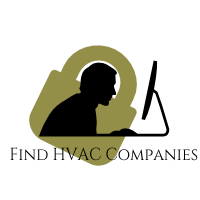Important HVAC Safety Guidelines for Technicians
Working as an HVAC technician can be a smart career choice and one that’s thriving in many cities across the U.S. According to Education.org, “heating, air conditioning, and refrigeration technicians hold approximately 292,000 jobs, and job openings in the field are expected to grow 10% through 2018.” Because this profession comes with inherent safety risks, it’s important to follow a few guidelines if you’re a new technician. Here are five of the most important.
1) Protective Gear
Any time you’re exposed to contaminants like dust, gases and other debris, you will need a respirator to avoid breathing in any harmful particles. If the respirator lacks eye protection, it’s necessary to wear either goggles or a face shield to keep your eyes safe from contact with liquids or flying particles. Gloves and arm protectors need to be worn when handling anything that could lacerate you such as sheet metal and glass.
Slip resistant shoes should ensure that you maintain steady footing, which is important when dealing with potential leaks and slippery floors. If you’re in an environment where objects may fall from above, a hardhat or some type of helmet is a good idea. Also, earplugs should be worn whenever you’re in a loud environment for an extended period of time.
2) Tools for Staying Safe
Part of being a professional HVAC technician is using the right HVAC tools for the specific job at hand. Before starting out on jobs, you will need to have acquired an assortment of tools like wrenches, wire strippers, an anemometer, clamp meter and vacuum gauge. With the ever-present threat of gas and radiation leaks, having a leak detector is also important. Keeping everything in working condition through routine maintenance is critical for staying safe on the job.
3) Identifying Hazards
Before jumping right into a task, it’s critical to take the time to make an assessment and know exactly what you’re up against. When you’re new to this profession, you should identify any potential hazards on each job site and take the proper safety precautions before going forth. It’s better to take a bit more time to get the job done right and stay safe than rush it and wind up seriously injured. The Centers for Disease Control and Prevention also suggests that it’s smart to participate in “additional electrical safety training to those workers working with or around electrical current, including proper rescue procedures.” If electrical safety isn’t part of on-the-job training, one could consider taking a short 3-month electrician training program.
4) Chemical Safety
On a daily basis, you’re likely to encounter a range of chemicals that can pose a serious threat to your health. Everything from refrigerants and cleaning liquids to solvents and detergents can be problematic if handled incorrectly. In some cases, certain combustible chemicals can explode and cause major injury. That’s why you should always wear protective gloves when handling chemicals that can cause skin burns.
You should always follow proper procedures when transporting and storing chemicals. In some cases, newer technicians will lack in-depth knowledge on certain chemicals, so extra precaution is needed during your learning curve. If you’re at all unsure about a particular substance, you should familiarize yourself with it or ask an expert before handling it. It’s better to be safe than sorry.
5) Avoiding Shock
Because you’re often dealing with electrical equipment that you may not be fully familiar with when starting out, you should be cautious and take preventative steps to minimize your risk of shock or electrocution. This can be especially problematic whenever there is a water leak within an HVAC system. As water drips onto the electrical parts, it’s the perfect recipe for equipment failure and shock. Typically, the best way to stay safe is to turn off main circuit breakers beforehand. Not only should this eliminate the threat of electrocution, but it should prevent any expensive equipment from being damaged as well.
Training to become an HVAC technician can be a rewarding profession and one that should be stable for years to come. To ensure a long lasting career and prevent unnecessary hazards, you should always place an emphasis on safety. Following these guidelines should be a good starting point and keep you safe regardless of the job.


















